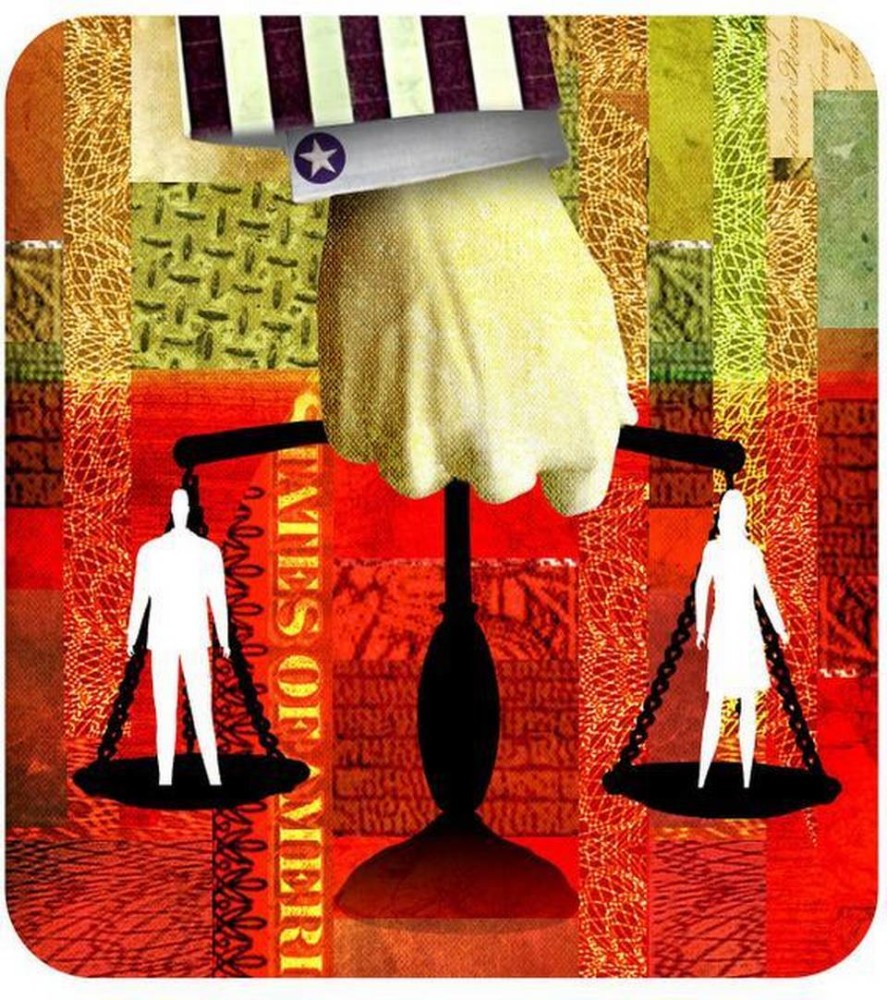By Molly Young
The Oregonian, Portland, Ore.
Women tend to earn less than men in Oregon. On average, about four nickels less per dollar.
Executive coach Karen O’Keefe hears the stories. A woman takes a new job, negotiates a salary and goes to work. Then a year in, they discover a man hired at the same time, for the same job, with similar qualifications, earns more. “And the heart goes out of you,” said O’Keefe, of Beaverton.
At a time when the back-and-forth over minimum wage is heightening in Salem, two proposals aimed at narrowing the gender earnings gap are primed to spark a different debate. House Bill 2006 would outlaw employers from paying men and women different amounts for equivalent work, while House Bill 2007 would prohibit employers from punishing workers who discuss their wages.
A House committee plans to take up the measures Monday. The proposals are backed by top Democrats in the Senate and House of Representatives, who contend existing anti-discrimination laws haven’t done enough to bring women’s wages in line with men’s, and that people should feel safe to talk with colleagues about pay. But other legislators question whether the bills would have a disproportionate impact on small businesses and open those firms up to lawsuits lodged by former employees.
Regardless of the bills’ ultimate fate in Salem, fairness and transparency are key to the way workers feel about their jobs and how productive they are, O’Keefe said.
“You just do better work,” said O’Keefe, who runs Advanced Negotiation Strategies. “When you don’t think you’re being treated fairly, your enthusiasm for the job is hampered.”
The genesis behind the bills was a 2014 study on pay inequality by the Oregon Council of Civil Rights, a group appointed by the state labor commissioner. That group found women in Oregon earned 79 cents for every dollar men brought home in 2012. That was two pennies better than the national average.
Analysis by the state Employment Department produced similar findings. Women earned less, on average, than men in all of the state’s major industries in 2012. Some of the widest gaps were in arts and entertainment, finance and healthcare and social assistance. Even though the latter industry tends to be relatively high-paying, women’s average monthly pay came to just 58 percent of men’s.
Cindy Tortorici, who has been a career coach for 11 years, said she doesn’t know whether the widespread difference has to do with what employers offer employees. “But I do know that women are reticent to go back and negotiate once they get an offer and ask for an increase in pay,” said Tortorci, who owns The Link LLC in Tigard.
Part of the difference may be explained by the fact that women are less likely to work full-time than men. The overall statewide gap also may be tied to the types of jobs women hold, since women are often underrepresented in high-paying industries such as technology. Women make up just 30 percent of the state’s tech workforce, compared to 47 percent of all workers, according to the state Employment Department.
“When you talk about wage equality and equal pay, it’s more important than ever before,” said Rep. Jessica Vega Pederson, D-Portland, whose background is in tech. Vega Pederson is the House majority whip and a chief sponsor of the equal pay bills.
The first of the two measures, House Bill 2006, would make it illegal to pay employees of the opposite sex who hold equivalent jobs different wage rates. The test isn’t a job title. The definition spelled out in the bill involves jobs that have equivalent requirements “when considered as a composite of skills, effort, responsibility and working conditions.”and some other factors such as training, education or output.
As written, employers would be allowed to take into account merit or seniority to determine pay, as well as training, education or other factors tied to a legitimate business purpose. But they cannot punish employees for asking about or lodging complaints to state regulators that their pay does not meet standards set out by the law.
The measure would also expand protections of employees who were paid less than their opposite-sex counterparts for equivalent work.
The second bill, House Bill 2007, bars employers from discriminating against employees for asking about or discussing compensation with co-workers.
“Too many women are fearing retaliation for sticking up their rights for a fair wage,” said Vega Pederson, the state representative from Portland. She said she is optimistic about the bills odds. Democrats control of both the state House and Senate. “I think the time is now to really have a strong stand.”
But Kara Walker, a spokeswoman for the House Republican Caucus, said some members are concerned that there is room for interpretation in the proposals. Gray areas like which seniority or merit systems are acceptable and which are not could open up businesses to uncertainty and litigation.
A Portland attorney agreed that the equivalent-pay bill would create more risks for employers, said Leora Coleman-Fire, an associate employment law attorney at Schwabe, Williamson & Wyatt in Portland. “(House Bill) 2006 appears to offer ?employees a potential one-stop shop, rather than relying on multiple already-existing laws, for an ?award of slightly expanded and all-encompassing damages against an employer,” she wrote in an email to The Oregonian/OregonLive.
Coupled with other new proposals to increase the statewide minimum wage and provide sick time to employees, Walkers said, “you’re looking at a pretty heavy burden for small businesses.”
Walker said lawmakers should work to make sure Oregon’s current anti-discrimination laws are enforced.
But Senate Majority Leader Diane Rosenbaum, D-Portland, said current laws are not enough.
“I’m very hopeful,” said Rosenbaum, a cosponsor of the bills. “I think the proposals we have come up with really make sense.”














































































































































































































































































































































































